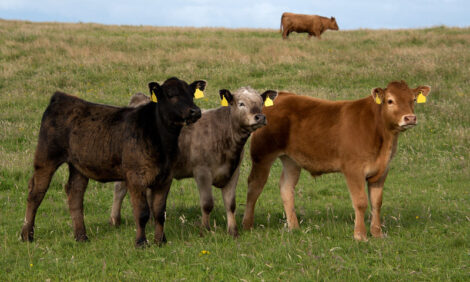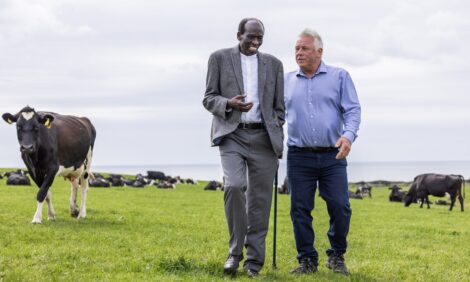



Botswana Starts Shooting Stray Zimbabwean Cattle
AFRICA - Botswana police have started shooting to death cattle owned by Zimbabweans that stray into their territory, a radical step announced six months ago as Gaborone scales up its fight against foot and mouth disease, writes Ian Nkala.Botswana, a largely desert Southern African country is one of the European Union (EU)'s most reliable sources of beef. However, frequent outbreaks of livestock diseases have, from time to time, interrupted the flow of deliveries into the EU market.
The Botswana government blames stray cattle owned by Zimbabweans for spreading the diseases as the latter struggles to promote the health of its herd owing to the continuing economic crisis.
Luka Ndou, a councilor in Shashe area along Zimbabwe's border with Botswana told a Beitbridge district consultative meeting that from the end of June to September 24 at least 400 cattle had been shot dead and burnt by Botswana police officers patrolling the border.
"It is with a heavy heart that I am speaking to you here," he said at the meeting. "We find it too harsh for our neighbours to kill our livestock like this. We don't expect our neighbours to do this, killing our livestock and then burning the carcasses. As your councillor, I have received reports, some people telling me in tears that starting end of June some of their cattle were disappearing mysteriously without trace. We investigated and later got information that Botswana police had started shooting our cattle that are straying into their country.
"It is a bitter pill to swallow because along the border on both sides we are one people. We have relatives and families who are separated by a colonial border. As you know there is no border fence between us, so cattle and people move freely across. We have consolidated the reports and from June to today [Saturday 24 September] we have lost about 400 animals."
Shootings labelled "brutal"
Botswana slaughters 220,000 cattle annually for domestic consumption and export. The Southern African country exports about 9,000 tonnes of beef to the EU under an unlimited preferential market access agreement. The agreement allows Botswana to export beef duty- and quota-free to the EU.
But that unlimited access to Europe is subject to stringent conditions that entail high levels of health of the animals, hence Botswana invests a lot of money in fighting cattle diseases.
In March, Botswana authorities advised Zimbabwe of their plan to shoot Zimbabwean strays with effect from June 1.
In June, Zimbabwe's Deputy Minister of Home Affairs, Obedingwa Mguni, who is also legislator for Mangwe along the border, said officials from both governments agreed that the shoot-to-kill plan be shelved indefinitely.
However, Mguni told Ian Nkala in an interview for The Cattle Site that Botswana police have started shooting to death the stray animals in a zone with an estimated 90,000 cattle.
From March and June, government officials in Zimbabwe carried out an awareness campaign, advising villagers to monitor the movement of their livestock.
In an interview with a local weekly, Sunday News, Paddy Zhanda, Zimbabwe's Deputy Minister of Agriculture said his ministry and the local political leadership in Matabeleland South held the outreach to prepare cattle owners in south-western Zimbabwe for the shootings.
“We did an exercise to sensitise people that once their cattle crossed to the Botswana side they risked being shot," he told the September 11 issue of Sunday News. "The Botswana government is under pressure from its farmers because the country exports beef to the EU market. It’s not something new though as it used to take place sometime ago. The three months grace period which we were given had since lapsed. However, at the moment I can’t confirm much, we will have to send our veterinary officer and the police to ascertain how many cattle have been shot.”
Zimbabwe is battling to contain a foot and mouth disease outbreak that was reported in April last year. The government's failure to buy and administer vaccines and farmers' disregard of cattle movement restrictions are blamed for the continuing problem.
Mguni said most of the killings have happened in Shashe, corroborating Ndou's view.
"I have received several reports of that nature. We are worried about that since we have been negotiating with our neighbours. We wanted to solve this as Africans but we see that that has not happened. We will continue working to solve this in an amicable way because losing a villager's cattle is a massive loss to him. We understand Botswana's commitment to the EU but shooting cattle to death for straying is being too brutal."
TheCattleSite News Desk


